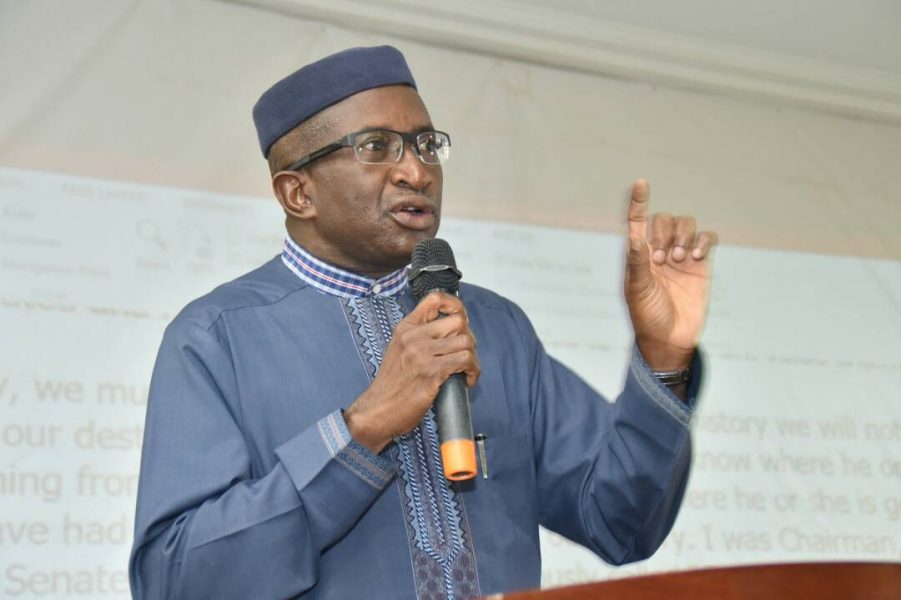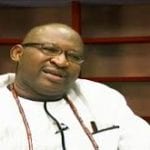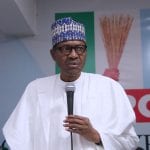By Michael Jegede
On November 4, 2016, a new Governing Board of the Niger Delta Development Commission (NDDC) constituted by President Muhammadu Buhari and headed by former Senate Leader, Distinguished Senator Victor Ndoma-Egba, was inaugurated with Mr. Nsima Ekere as the commission’s Managing Director (MD).
What has been the effort of the Ndoma-Egba-led board towards the fulfillment of the mandate of the interventionist agency? How has the board pursued the achievement of “the mission of facilitating the rapid, even and sustainable development of the Niger Delta into a region that is economically prosperous, socially stable, ecologically regenerative and politically peaceful.”?
Taking a look at the activities of the NDDC since Ndoma-Egba was appointed as Chairman, it is safe to say that the Board has lived up to expectation in the performance of its functions as spelt out in the agency’s enabling Act. In the last two years, the Board under the headship of the ex-Senate Leader, has come up with various initiatives and innovations, that have markedly changed the gloomy narrative and negative perception about NDDC.
The story of NDDC has been that of monumental failure, right from when it was set up in year 2000, by the administration of erstwhile President Olusegun Obasanjo, and given the mandate to oversee and fast-track the overall development of the oil-rich Niger Delta. The interventionist body, apparently, became more of a mere contract awarding agency, with countless number of abandoned projects littering every nook and cranny of the Niger Delta region.
However, the coming on board of Ndoma-Egba brought life to the hitherto inert and slumbering NDDC. One of the significant steps taken by the Ndoma-Egba-led board, to tackle the problem of project abandonment, was its decision to set aside 70% of the commission’s annual budget for the completion of existing projects, while leaving only 30% for new ones. This measure has guaranteed the completion of many viable seemingly neglected projects of the interventionist agency. Projects are now being prioritized and contractors properly monitored to ensure that they don’t abandon their jobs.
The NDDC board, under the former parliamentarian, effected the termination of about 600 non-performing projects worth over N200 billion, after carrying out a comprehensive contract verification exercise. The awards for the cancelled contracts were rife with irregularities and the projects at zero percent completion, meaning that nothing had been done on them.
A progress report on project implementation released in March this year indicated that in 2017, a total of 372 impactful projects covering roads, bridges, electricity, water, amongst others, were completed by the commission. Some of the projects include the 25.7 km Nembe-Ogbia road; the construction of Otueke Internal roads in Ogbia LGA, Bayelsa State; Kira Dere Mogho road and Bridge in Gokana LGA, Rivers State; the construction of Iselu-Okaigben-Idung-Boko-Onicha Ugbo road, in Edo State; the Orie Ukwu Amaoji market road, Isiala Ngwa North LGA, Abia State and the Ashikem-Ufono-Betwaswan road in Obudu, Cross River State.
The NDDC Project Monitoring Network, in Cross River State, recently, released its findings in the course of monitoring the agency’s projects being executed in the three senatorial districts of the state. The findings reveal that since November 2016 when the Ndoma-Egba-headed board was installed, the NDDC had embarked on and completed over 40 projects across the state. Coordinator of the network, Mr. John Bassey, said: “The commission is also executing 112 other projects across the three senatorial districts of the state all of which would be completed on schedule and a good number of the projects are in road construction especially, rehabilitation of section of Calabar –Ikom –Ogoja federal highway.”
Last year, NDDC had a total of 51 emergency road intervention projects in Akwa Ibom State. Uyo, the Akwa Ibom State capital has over 30 service roads that witnessed overwhelming turnaround from the massive road intervention programme, by the NDDC under the present board, across the nine states of the Niger Delta zone. Some of the roads in Akwa Ibom reported to have received emergency repairs include the Etim Okpoyo Street, Ewet Housing Estate, Uyo; John Asuquo Avenue, Shelter Afrique Estate, Uyo Mbiabong and IfaIkot Road, Uyo; 1.2 km Enwang-Oron Road with 500m drainage system in Enwang, Mbo; and Ikot Obong Road in Ikot Abasi. Others are internal roads in Federal Housing Estate, Uyo; Anamfa Street, Ola Street and Eyo Akan Close, Oron; 1.3 km of Obubra Ekpo Bassey Street, Oron; Cross River Basin Road, Obiokama Ete, Ikot Abasi; Iko Akpan Omon, Otong/Ibok Brothers Estate Road, Ikot Ekpene; and 3 km of Control Post to Federal Government College, Ikot Ekpene.
In Delta State, the Ndoma-Egba- led NDDC has inaugurated road projects worth over N6.2 billion located in three Local Government Areas (LGAs). The benefiting LGAs are Warri North, Sapele and Ughelli North. In Sapele, a 3.1km road was constructed at the cost of N482m. Three roads were completed in Warri North at a total cost of N5.4 billion.The roads with drainages are: the 2.52kmTebu-Gbokoda road in Olero creek community; 2.125kmTebu-Gbokoda-Udo road and the 2.95km Udo-Ajamita road. In Ughelli North, the reconstructed Uloho Avenue Road gulped N312.7m.
In the agency’s determination to support the growth and development of education in the Niger Delta, it has in the last two years of Ndoma-Egba’s assumption of office as Board Chairman, embarked on the renovation of schools in all the states of the region. The commission, in January this year,commenced the distribution of 72,000 desks and chairs to public schools and provided other materials to upgrade the learning environments across the nine states in the oil zone.
The current board has equally shown great zeal towards growing the agricultural sector of the Niger Delta through the various programmes initiated to promote modern agricultural practices.The agency’s partnership with the Nigerian Export Import Bank, NEXIM, to set up a N2.5 billion export development fund, targeted strictly at the agricultural value chain, would create an export initiative that will provide job opportunities and give hope to the teaming unemployed youths of the region.
The NDDC is equally in partnership with the International Fund for Agricultural Development, IFAD, a specialized United Nations (UN) agency based in Rome, on a 60 million dollars (about 21 billion naira) job creation programme. The interventionist agency has since November 2016 entered into several other partnerships that are geared towards ensuring the all-round development of the Niger Delta and its people.
No doubt, the NDDC has never had it so good in terms of the kind of proactive, pragmatic, visionary and purposeful leadership being provided by Ndoma-Egba, as Chairman, and Ekere as MD. The duo of Ndoma-Egba and Ekere, have proven their worth and capacity as leaders with great wisdom and foresight in the way they have cooperatively run the affairs of the NDDC, and repositioned it for greater efficiency and better performance in the interest of the Niger Deltans.
Michael Jegede, a media professional writes from Abuja























Leave a comment